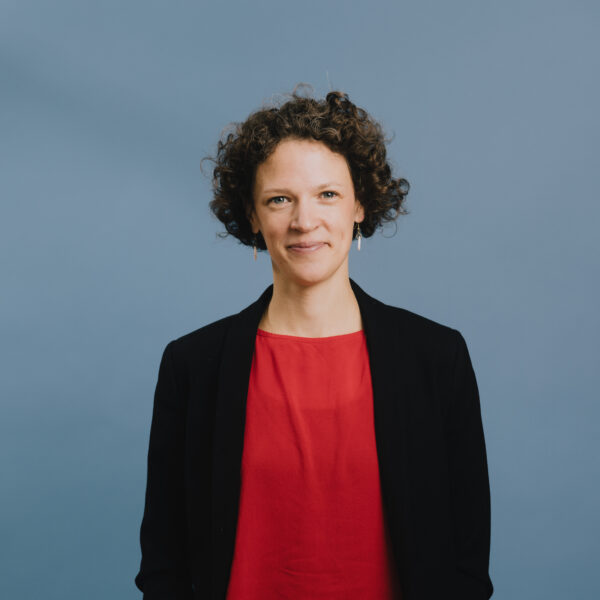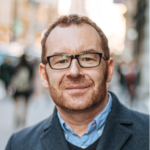Civil Resistance One on One
2nd October 2018 by Jasmina Golubovska
At the end of June, people from different continents gathered in Arusha, Tanzania to discuss civil and political rights in the countries they currently reside. The meeting was organized by International Civil Society Centre, and I was lucky enough to be invited as person who was involved in civic activities which contributed to this political change in a hybrid system.
 Sitting for 7 hours at the Istanbul airport en route to the meeting got me thinking about nation-state concepts and people living under different political and legal environments. Some are more intrusive to civilian spaces than others, yet nearly all try to limit open public spaces for free communication, interaction and information to people coming from such diverse communities in this world and Universe we all share. Some governments are reluctant to open the world to its citizens while others actively spew hatred towards the “otherness”.
Sitting for 7 hours at the Istanbul airport en route to the meeting got me thinking about nation-state concepts and people living under different political and legal environments. Some are more intrusive to civilian spaces than others, yet nearly all try to limit open public spaces for free communication, interaction and information to people coming from such diverse communities in this world and Universe we all share. Some governments are reluctant to open the world to its citizens while others actively spew hatred towards the “otherness”.
However, looking at the millions of different individuals interacting daily only in this airport, I realized that there is no repressive model invented able to stand the need of people to move, explore, exchange, socialize. Even repressive regimes need to maintain their economic and military strength if they plan to maintain power, and thus they have to participate in the exchange of labor, products, and services on global level. So, closed borders, militarization, wars, heavily urbanized killers (of health and nature) cities… are these constructed spaces just a product of our imagination as humans? And if so, can we imagine something better in future? Can we take a leap on the evolutionary scale by recognizing such constructs and think of all natural space as an empty canvas on which we can draw a better picture? Is that just a prelude to the next step: aware humanity?

Is the social interaction and exchange the key to opening the door to awareness of the co-dependence of all beings with nature? Can mistakes and destruction lead to comprehension that natural resources and our habitat as we know it is expendable, while humanity being dependable may parish?
This thought stayed with me on the 10 h. flight to Arusha, and throughout the 4 days which passed faster than those 17 hours of travel! I met people, heard stories, and developed deep friendships with activists from:Hong Kong, Singapore, Argentina, Uganda, Congo, Zimbabwe, Kenya, Cameron, Tanzania, Russia, Ukraine, Turkey, Pakistan, Egypt, Germany, United States of America…
We share the same vision on what our civic space should look like as spaces extending to communities where social interaction take places, where people see each other even without communication, where friends meet, or celebrate and cultures mix. Something like the scenery I’ve tried to capture while pondering the airport in Istanbul.
 One may ask, did we succeed to finding a way to protect our spaces for communication and democracy? Did we detect and overcome the obstacles to future participatory democracies with citizens well-being put on the top of the political agenda? Have we thought of ways to remove the different restraints on civil and political rights? How to protect your self and others from government oppression, military power, hunger and live in societies which allow people to organize, participate and communicate among each other without fear of prosecution, pollution, famine, overall natural and human deprivation?
One may ask, did we succeed to finding a way to protect our spaces for communication and democracy? Did we detect and overcome the obstacles to future participatory democracies with citizens well-being put on the top of the political agenda? Have we thought of ways to remove the different restraints on civil and political rights? How to protect your self and others from government oppression, military power, hunger and live in societies which allow people to organize, participate and communicate among each other without fear of prosecution, pollution, famine, overall natural and human deprivation?
Well, reaching the end of the text the obvious answer is no, we didn’t find the way. We didn’t solve the world hunger, wars, dictators or housing problems, but we have few ideas on how to get people together to socialize and communicate their hardship openly and freely. We thought of ways how people can help each other across borders, governments and continents and that is a force to be reckoned. Remember that one thing I’ve mentioned that governments and militaries can’t stop, at the beginning of this text?
Well, they can’t stop us from meeting, talking, thinking and acting in the public or virtual world. They may slow the process by different forms of oppression, but they can’t stop it.


 Sitting for 7 hours at the Istanbul airport en route to the meeting got me thinking about nation-state concepts and people living under different political and legal environments. Some are more intrusive to civilian spaces than others, yet nearly all try to limit open public spaces for free communication, interaction and information to people coming from such diverse communities in this world and Universe we all share. Some governments are reluctant to open the world to its citizens while others actively spew hatred towards the “otherness”.
Sitting for 7 hours at the Istanbul airport en route to the meeting got me thinking about nation-state concepts and people living under different political and legal environments. Some are more intrusive to civilian spaces than others, yet nearly all try to limit open public spaces for free communication, interaction and information to people coming from such diverse communities in this world and Universe we all share. Some governments are reluctant to open the world to its citizens while others actively spew hatred towards the “otherness”.
 One may ask, did we succeed to finding a way to protect our spaces for communication and democracy? Did we detect and overcome the obstacles to future participatory democracies with citizens well-being put on the top of the political agenda? Have we thought of ways to remove the different restraints on civil and political rights? How to protect your self and others from government oppression, military power, hunger and live in societies which allow people to organize, participate and communicate among each other without fear of prosecution, pollution, famine, overall natural and human deprivation?
One may ask, did we succeed to finding a way to protect our spaces for communication and democracy? Did we detect and overcome the obstacles to future participatory democracies with citizens well-being put on the top of the political agenda? Have we thought of ways to remove the different restraints on civil and political rights? How to protect your self and others from government oppression, military power, hunger and live in societies which allow people to organize, participate and communicate among each other without fear of prosecution, pollution, famine, overall natural and human deprivation?







